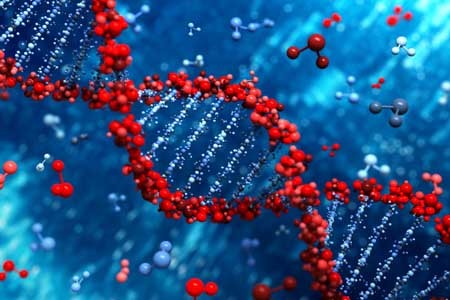DNA Repair Plays Role in Brain Development, Cancer, and Aging
DNA has several ways of repairing itself. Serious damage, including breaks to both strands of the double helix and problems with replication, prompt a process known as DNA damage repair, or DDR. Researcher Stephen J. Elledge of Harvard Medical School won the 2015 Albert Lasker Basic Medical Research Award for his findings about DDR. He summarized these findings in a September article in the journal JAMA.
DDR occurs because of DNA’s remarkable self-awareness. Through the DDR process, DNA can detect when it has been damaged and prompt the right kind of repair. When damage occurs, DDR allows for the activation of enzymes that can remodel DNA to maintain the integrity of the genome.
When DDR pathways are activated, they can alter more than 1000 different proteins. DDR can affect immune function, blood and bone marrow, viral response, cancer, aging, and brain development.
Mutations in components of the DDR pathway can lead to problems with brain development, including Seckel syndrome (characterized by dwarfism, brain and facial abnormalities, and mental retardation) and ataxia telangiectasia (loss of control of bodily movements along with weakened immune system).
DDR is particularly relevant to cancer, since properly functioning DDR promotes a stable genome. Classic cancer treatments such as radiation and chemotherapy also rely on DDR to prompt cell death.
DDR also plays a role in aging. When we get older or have certain illnesses, telomeres, bits of material at the end of DNA strands that protect the DNA during replication, get shorter. This prompts DDR to engage in tumor prevention measures, either killing off the cells or changing them into what’s called senescent cells. Senescent cells prevent tumors, but their accumulation is associated with chronic inflammation, aging, and age-related diseases.
Editor’s Note: You can protect your telomeres and possibly hold off the age-related effects of DDR. Healthy diet, exercise, meditation, goal setting, and making positive contributions to society all help maintain telomere length. Lithium treatment also directly increases telomere length.


